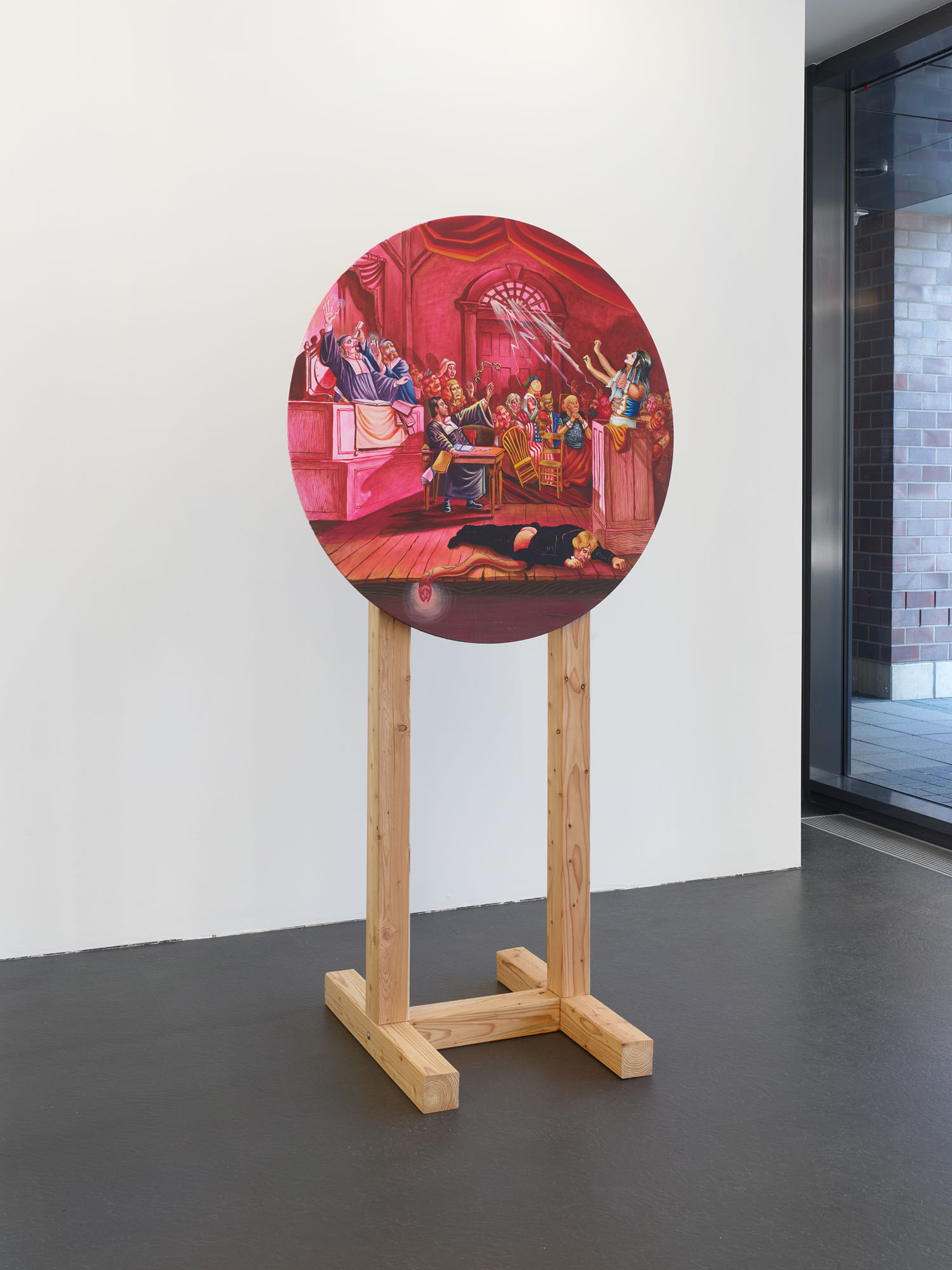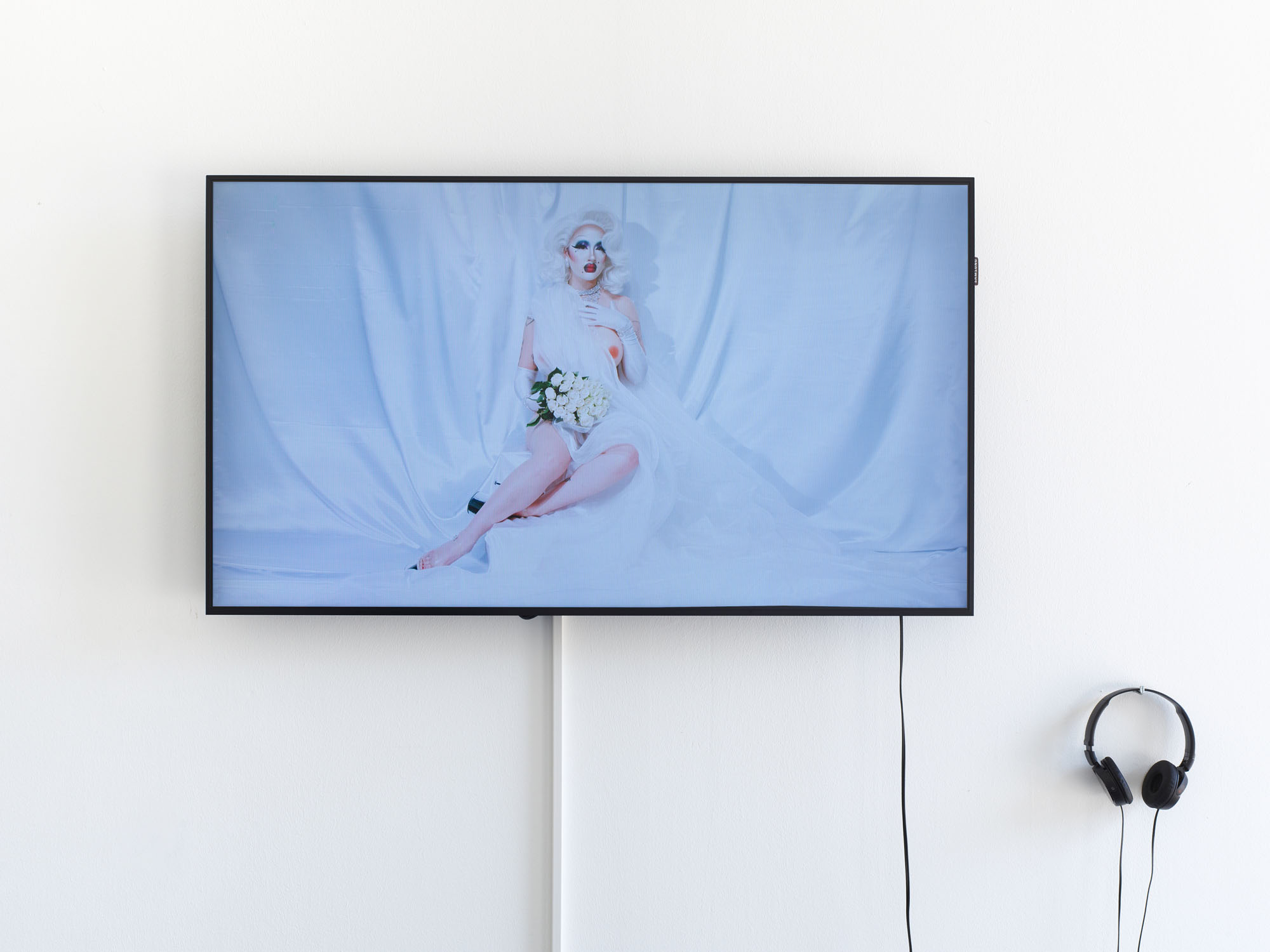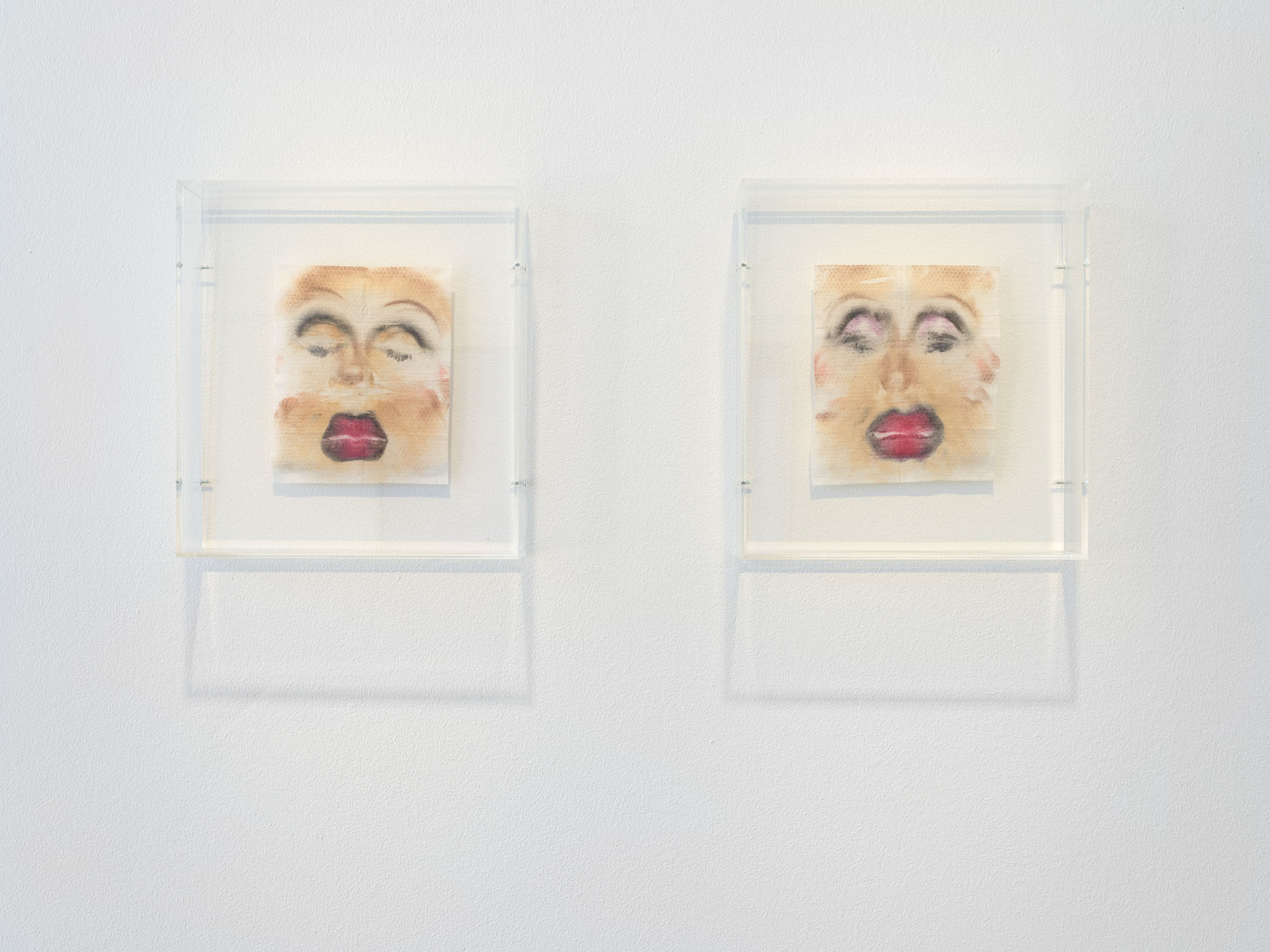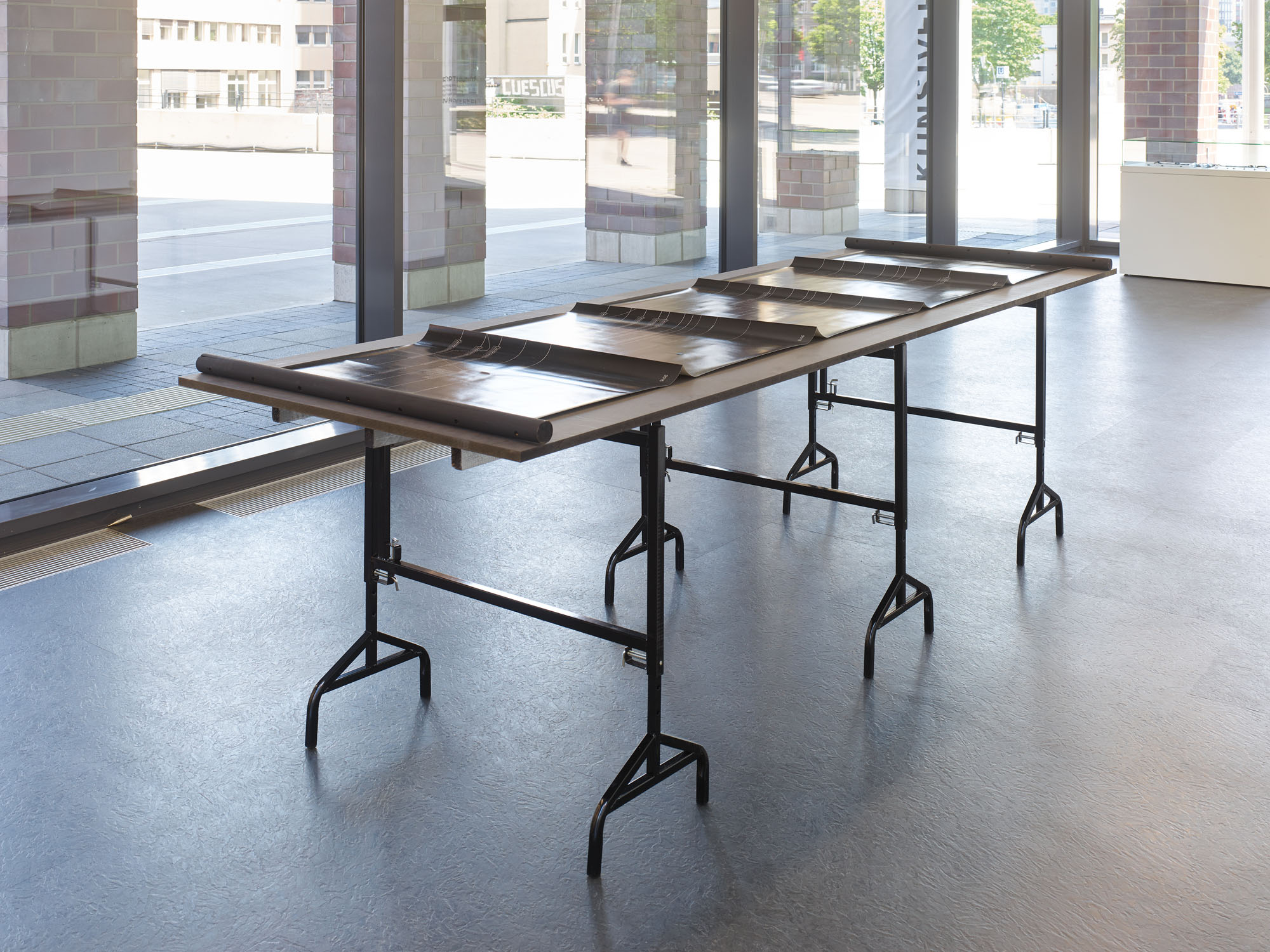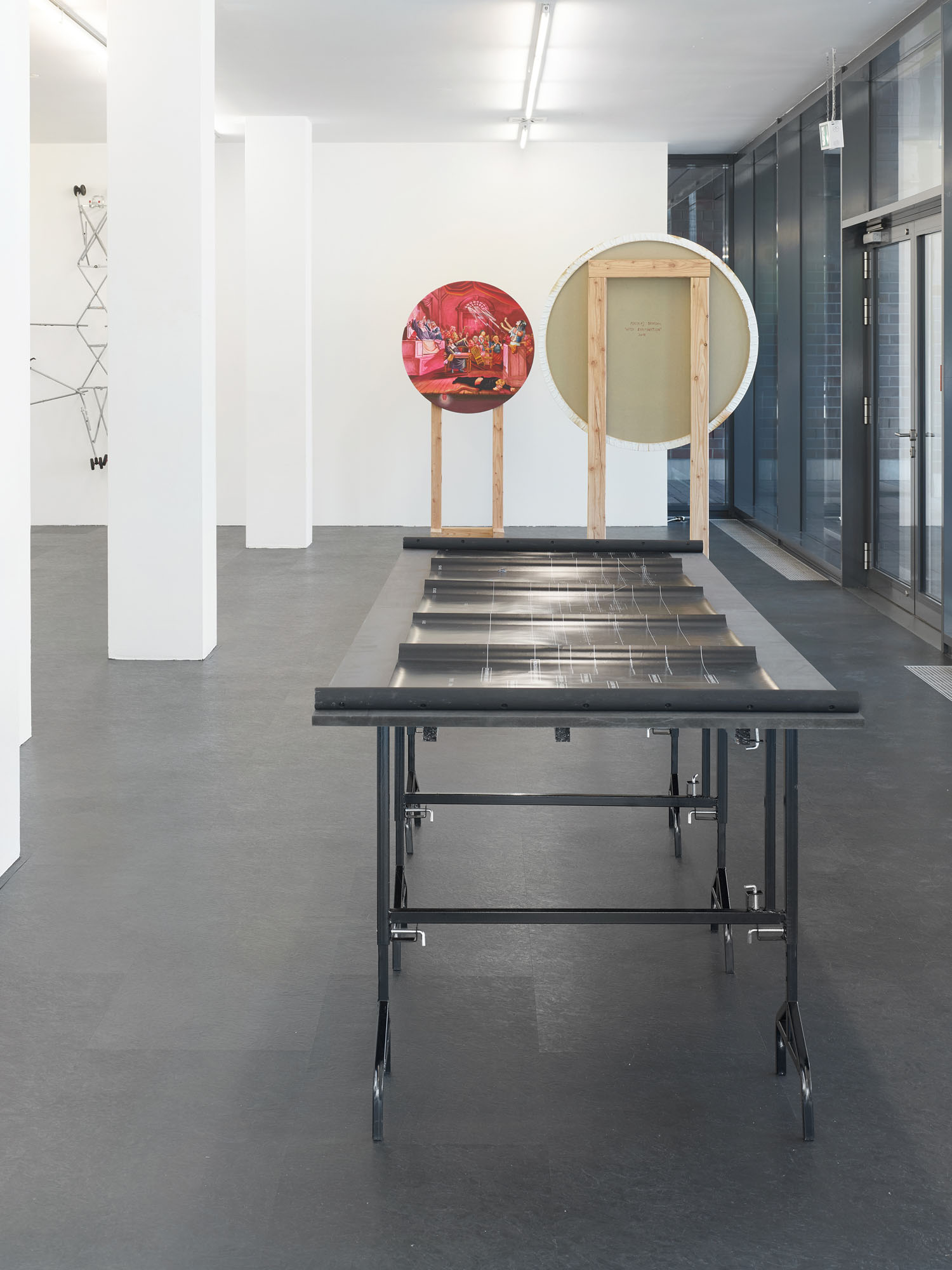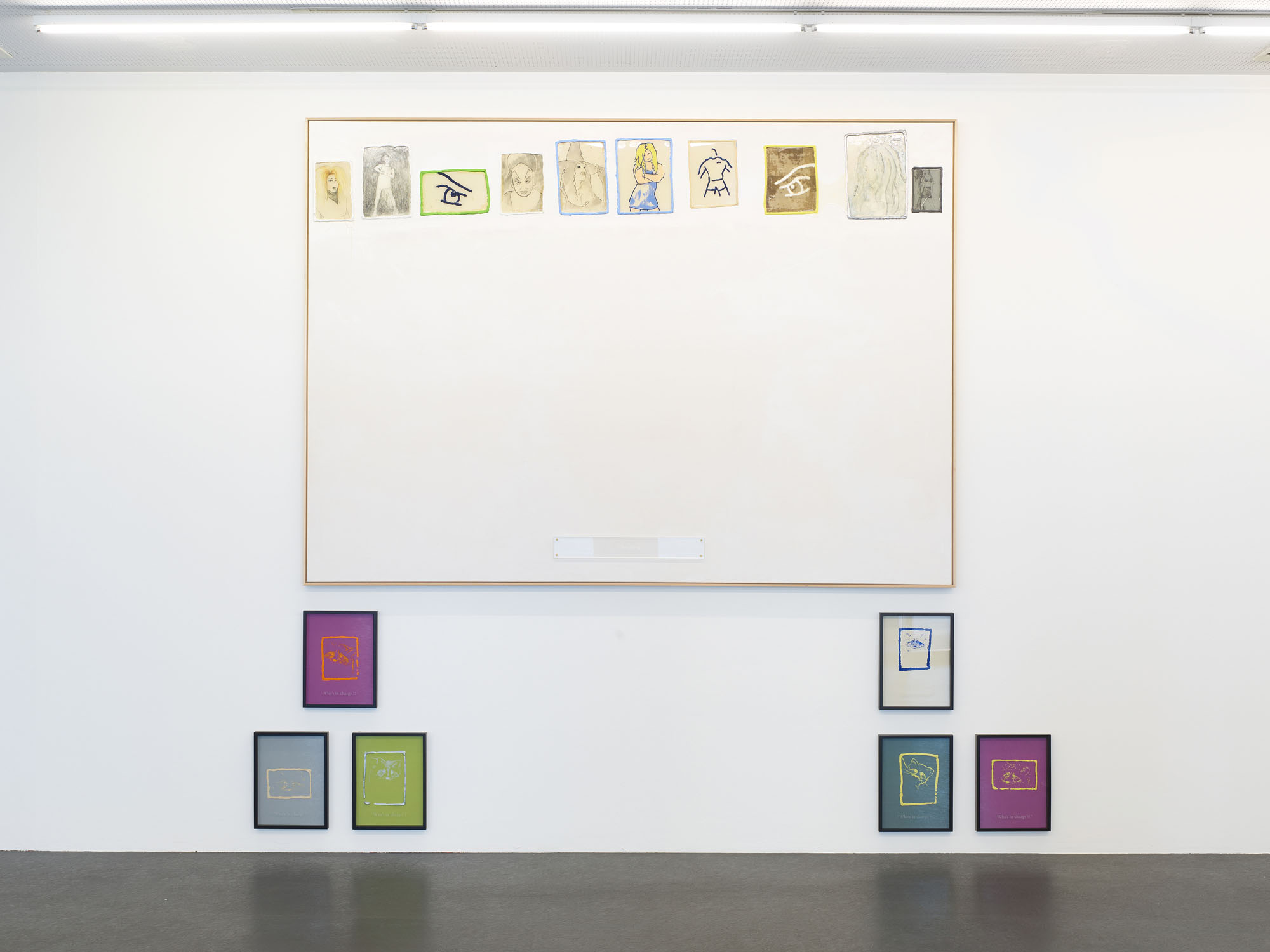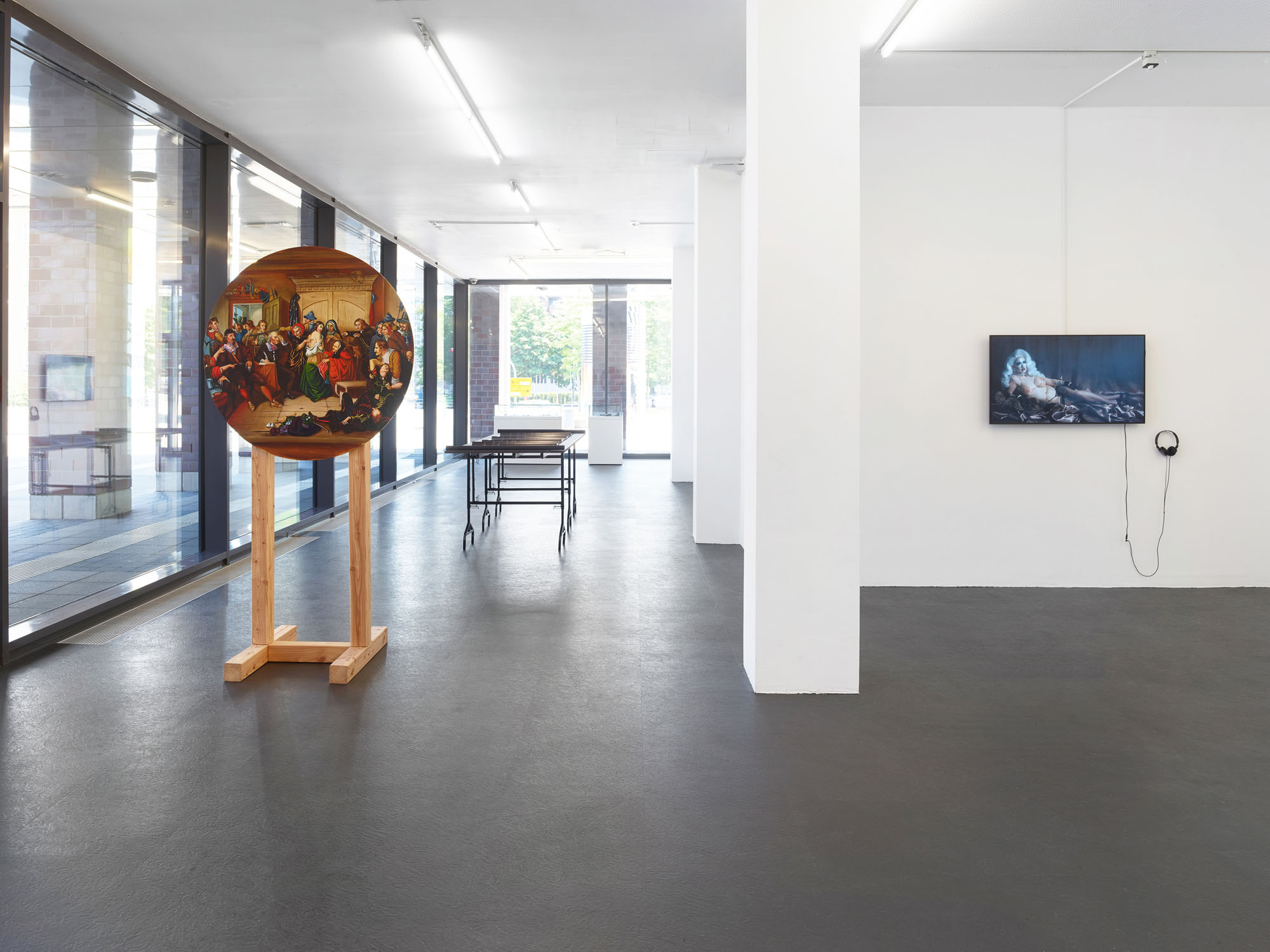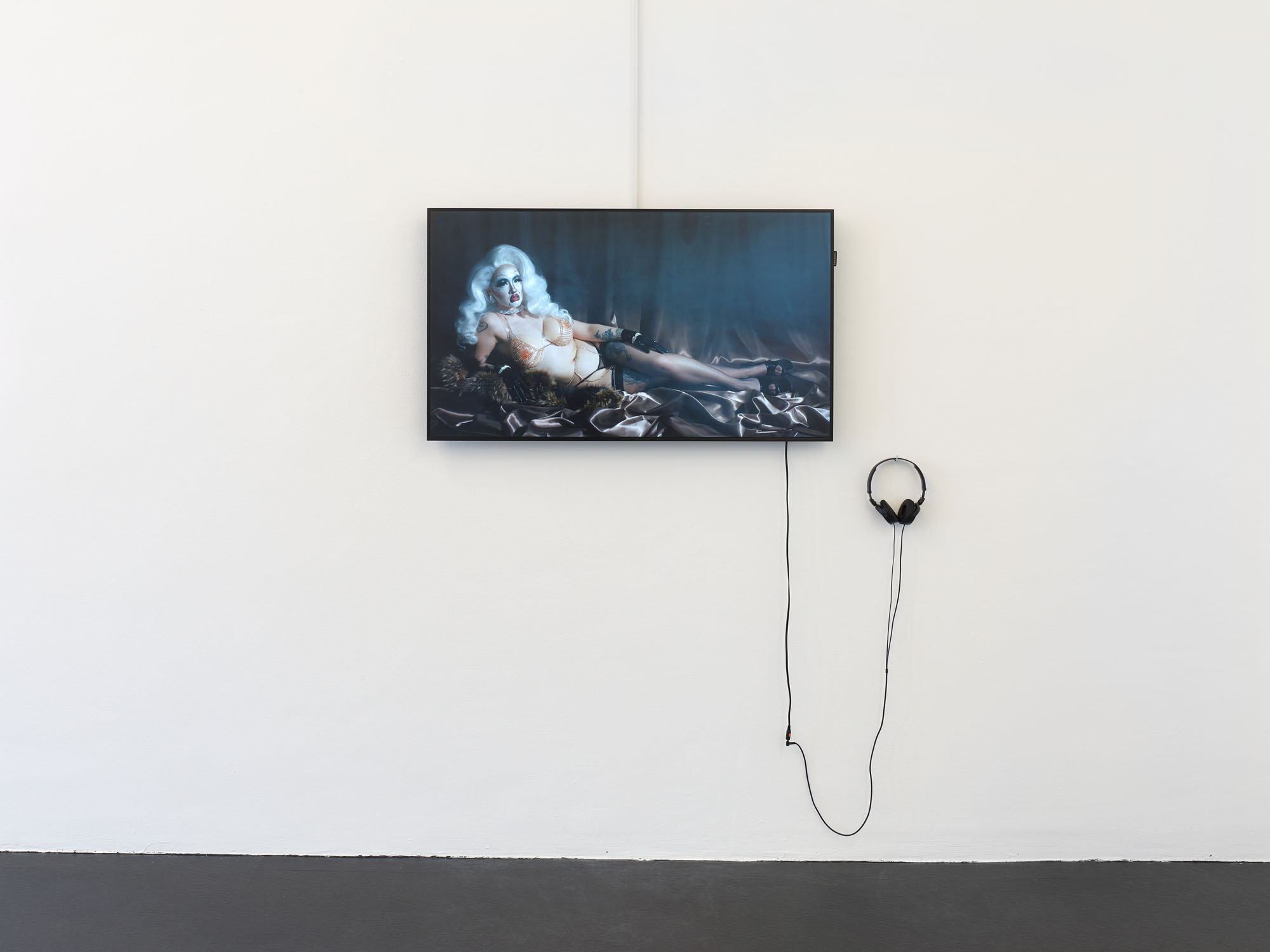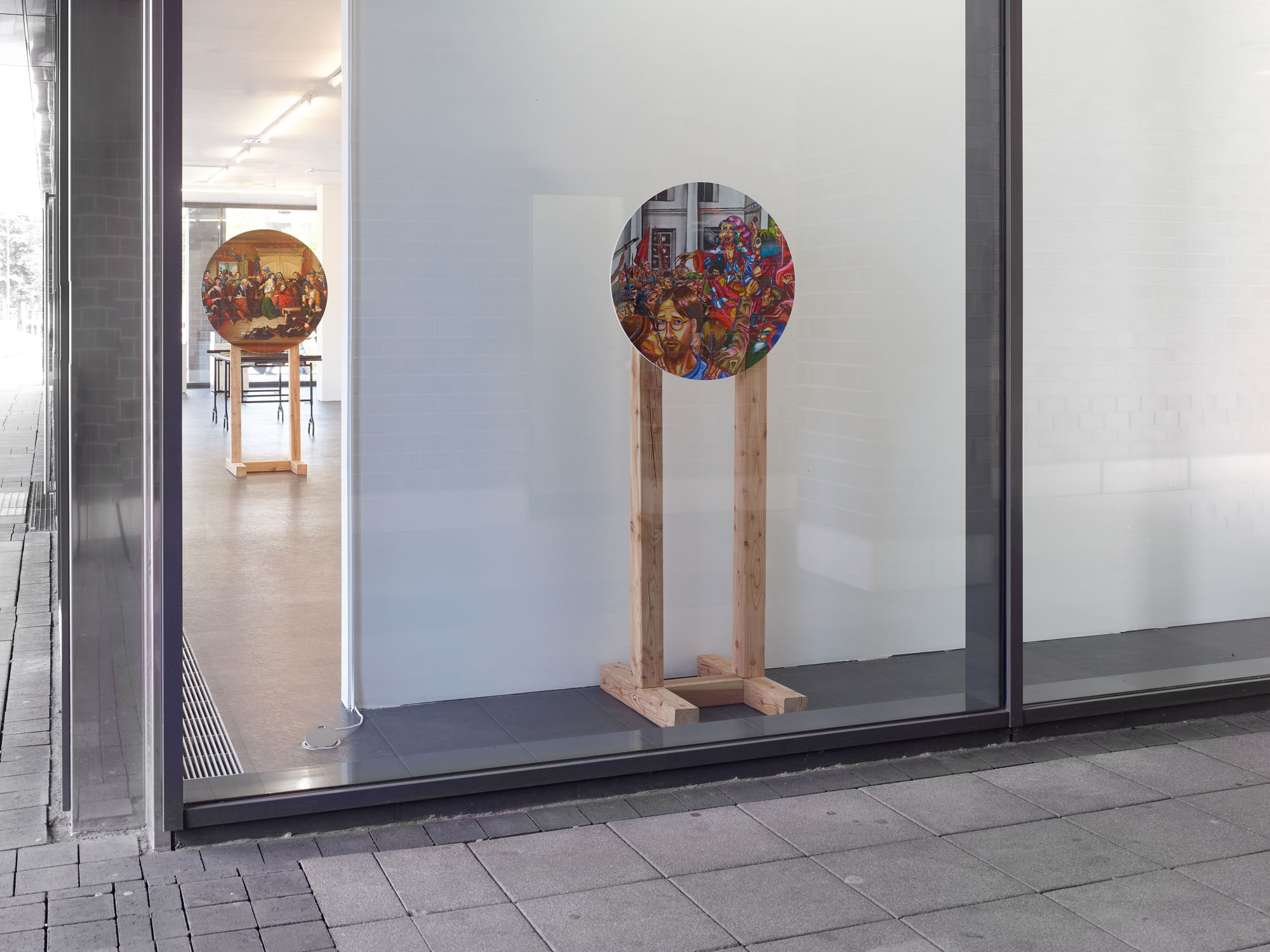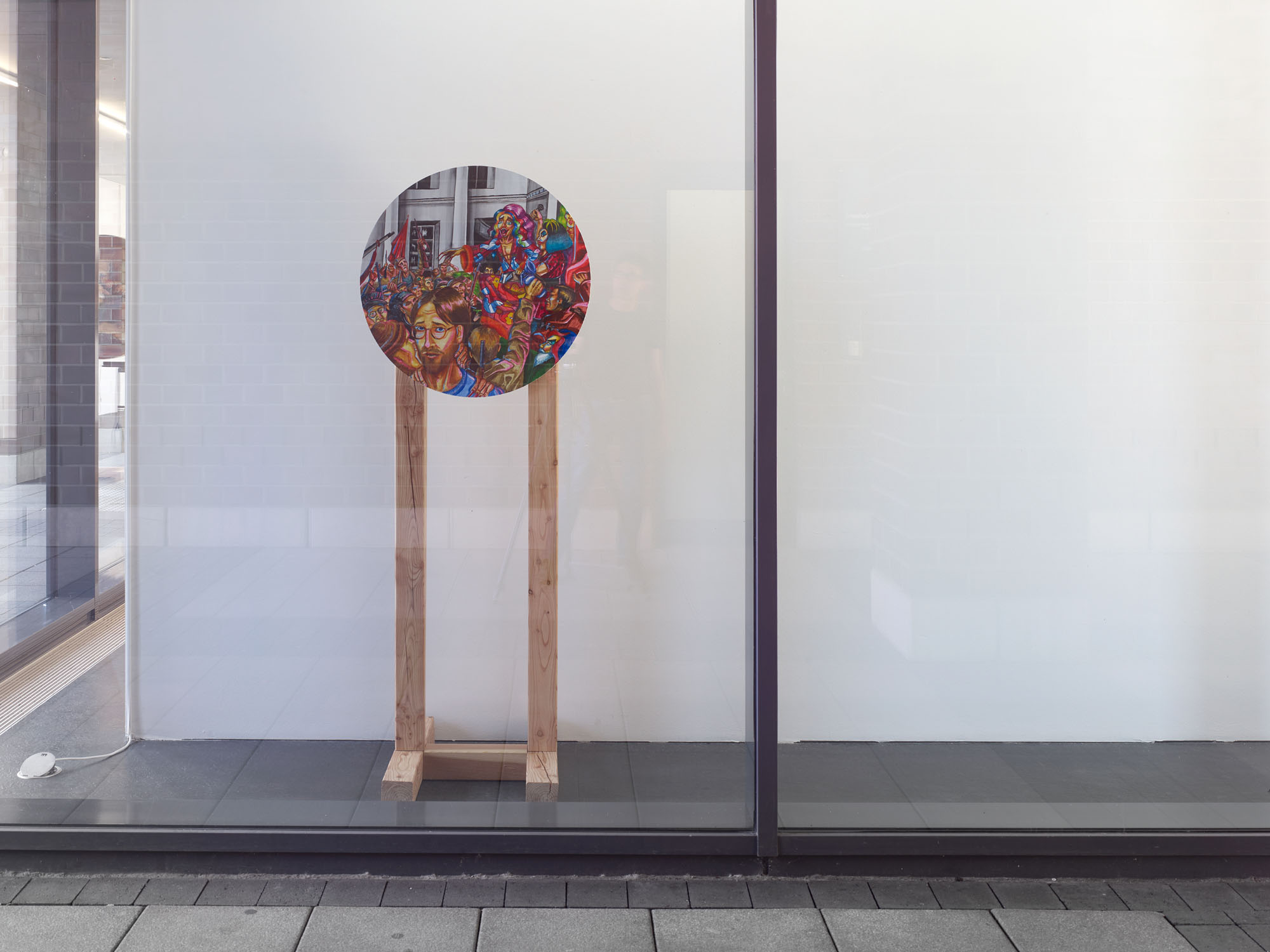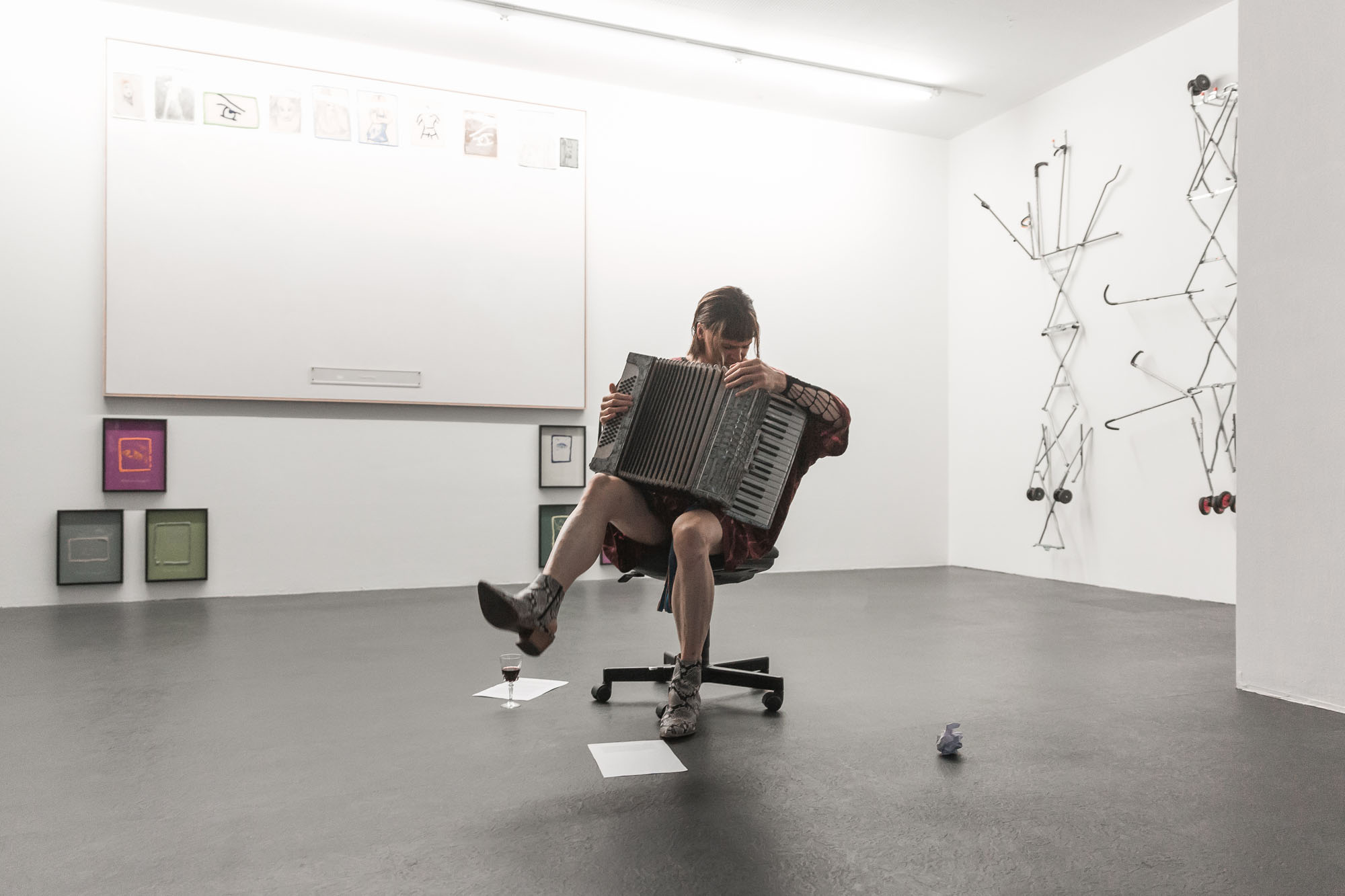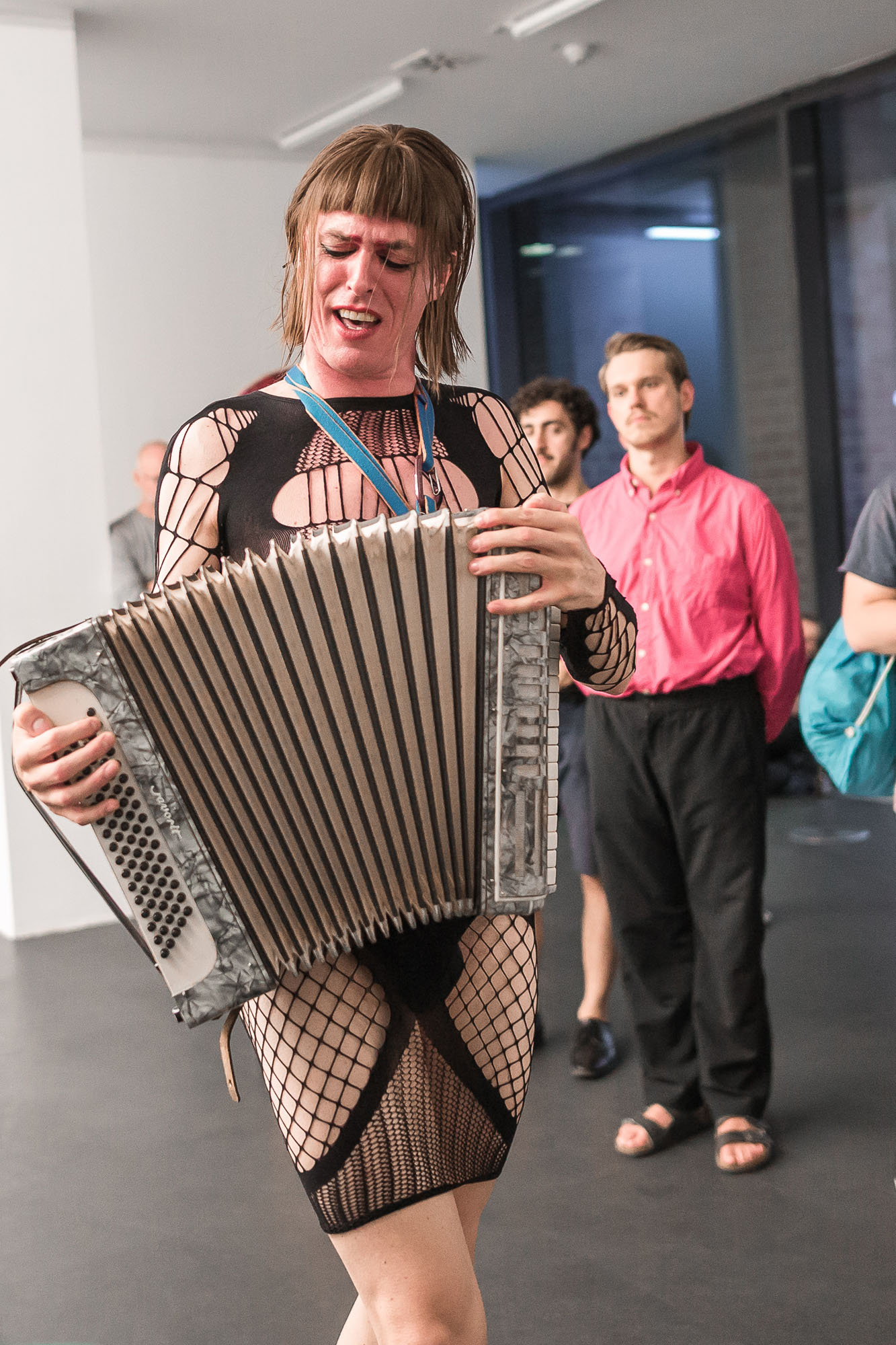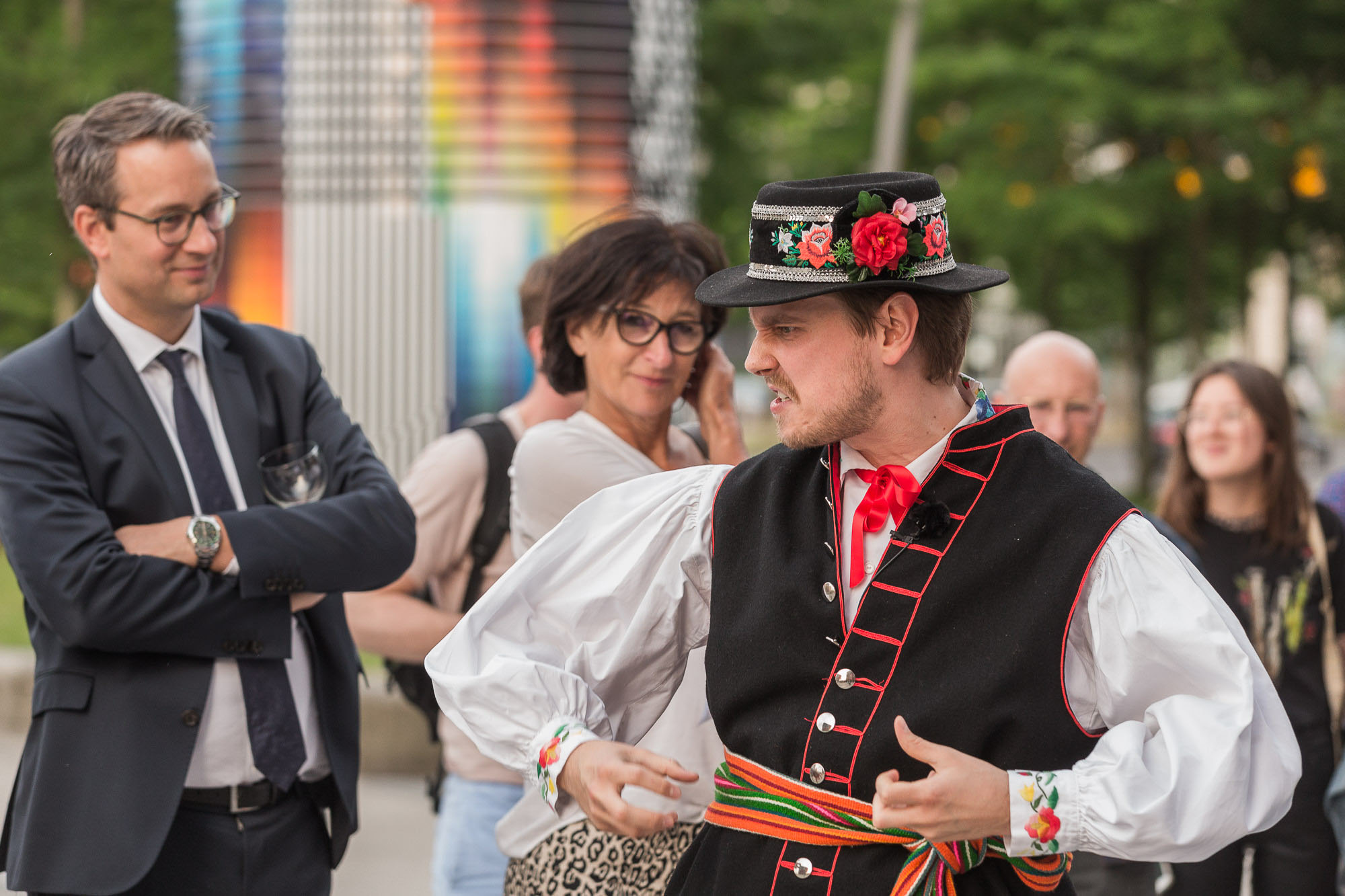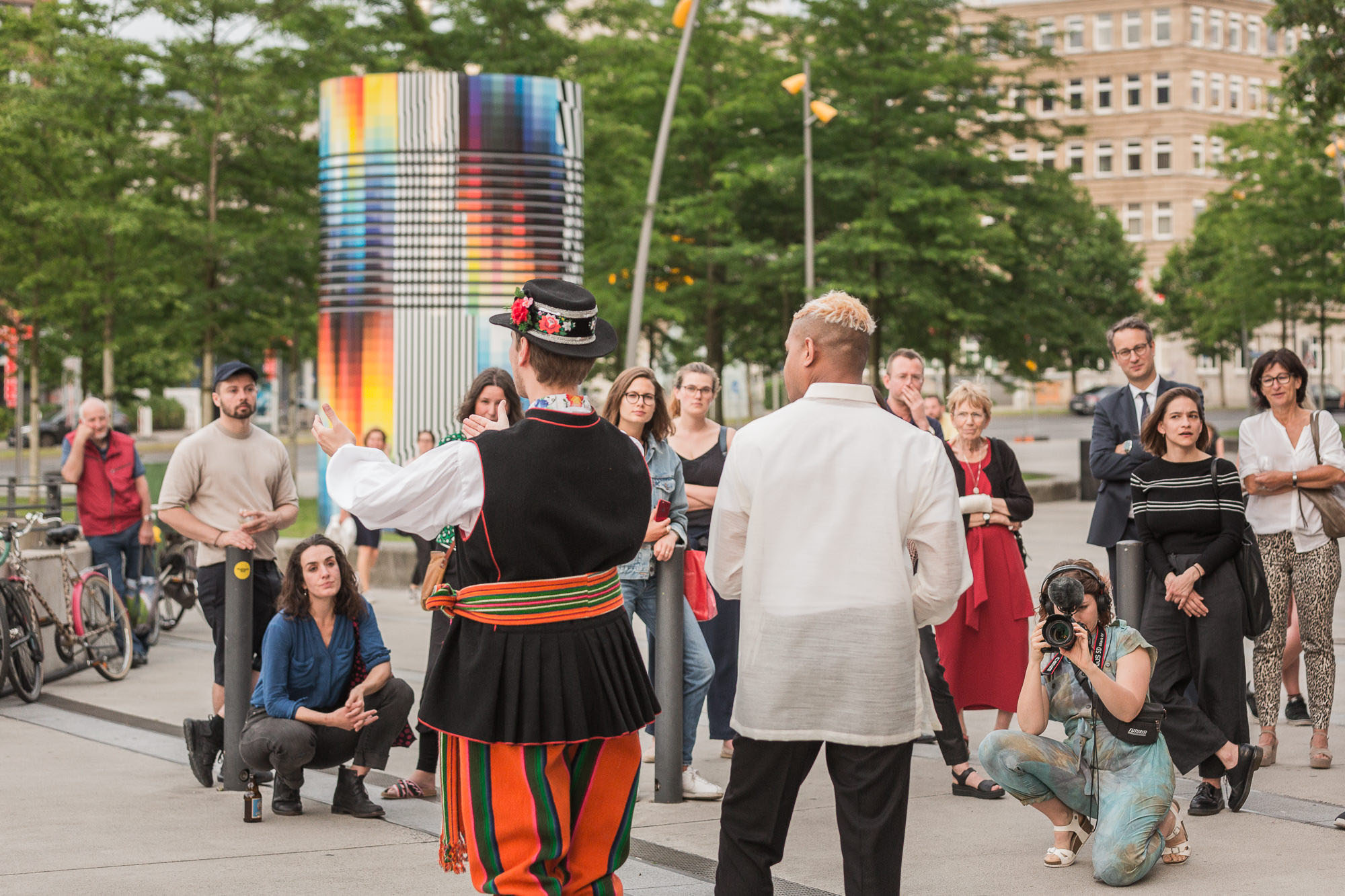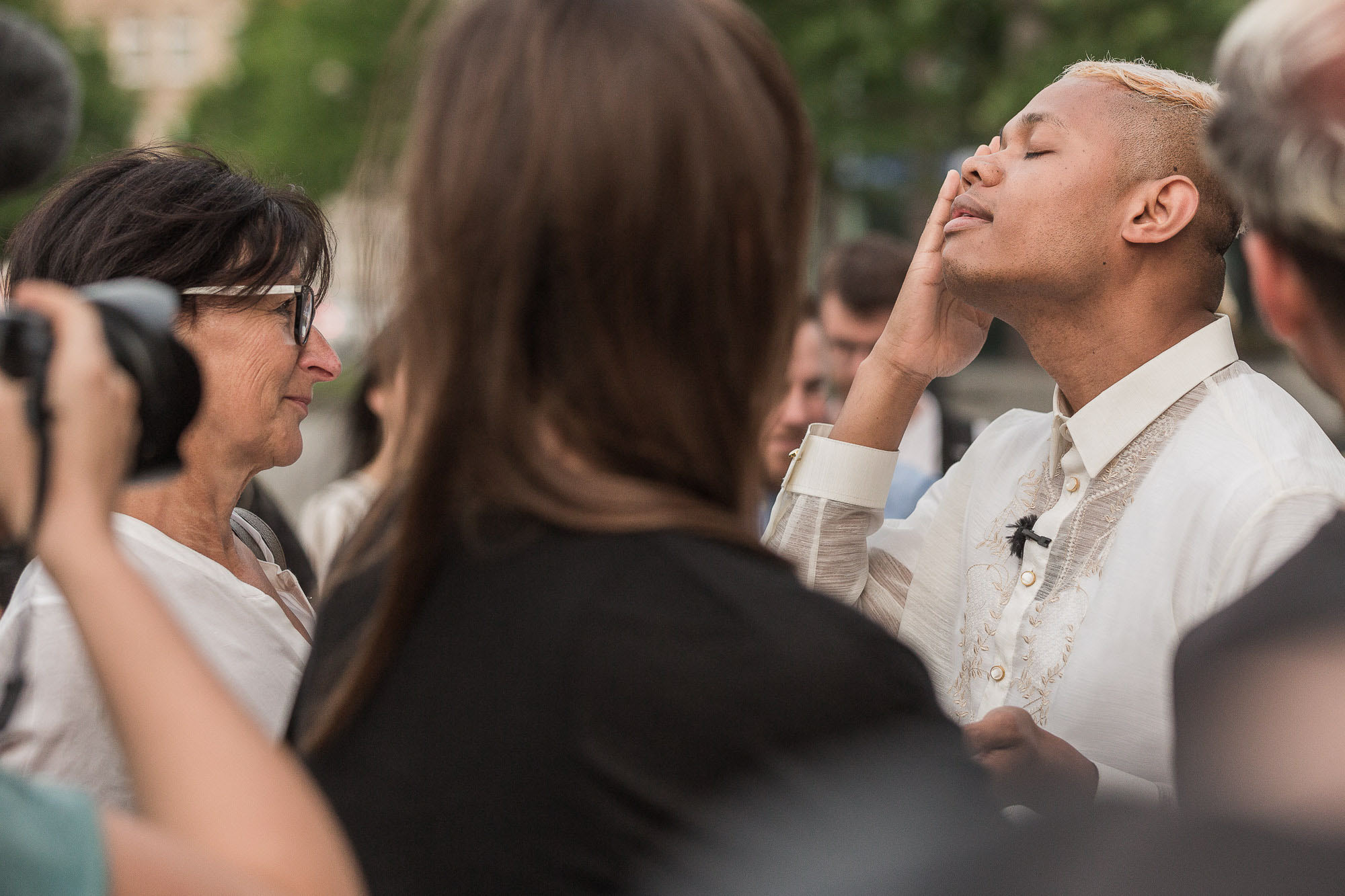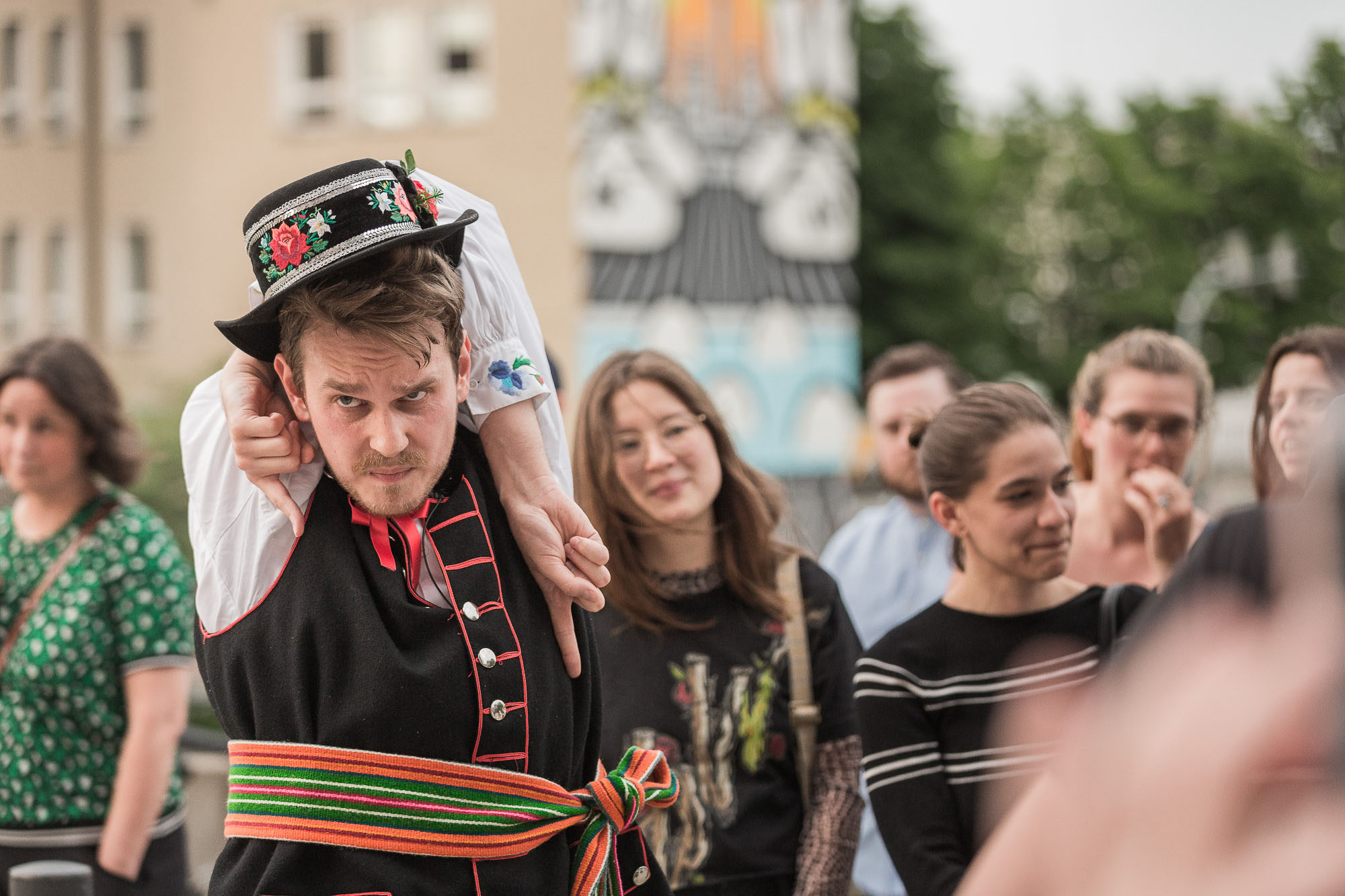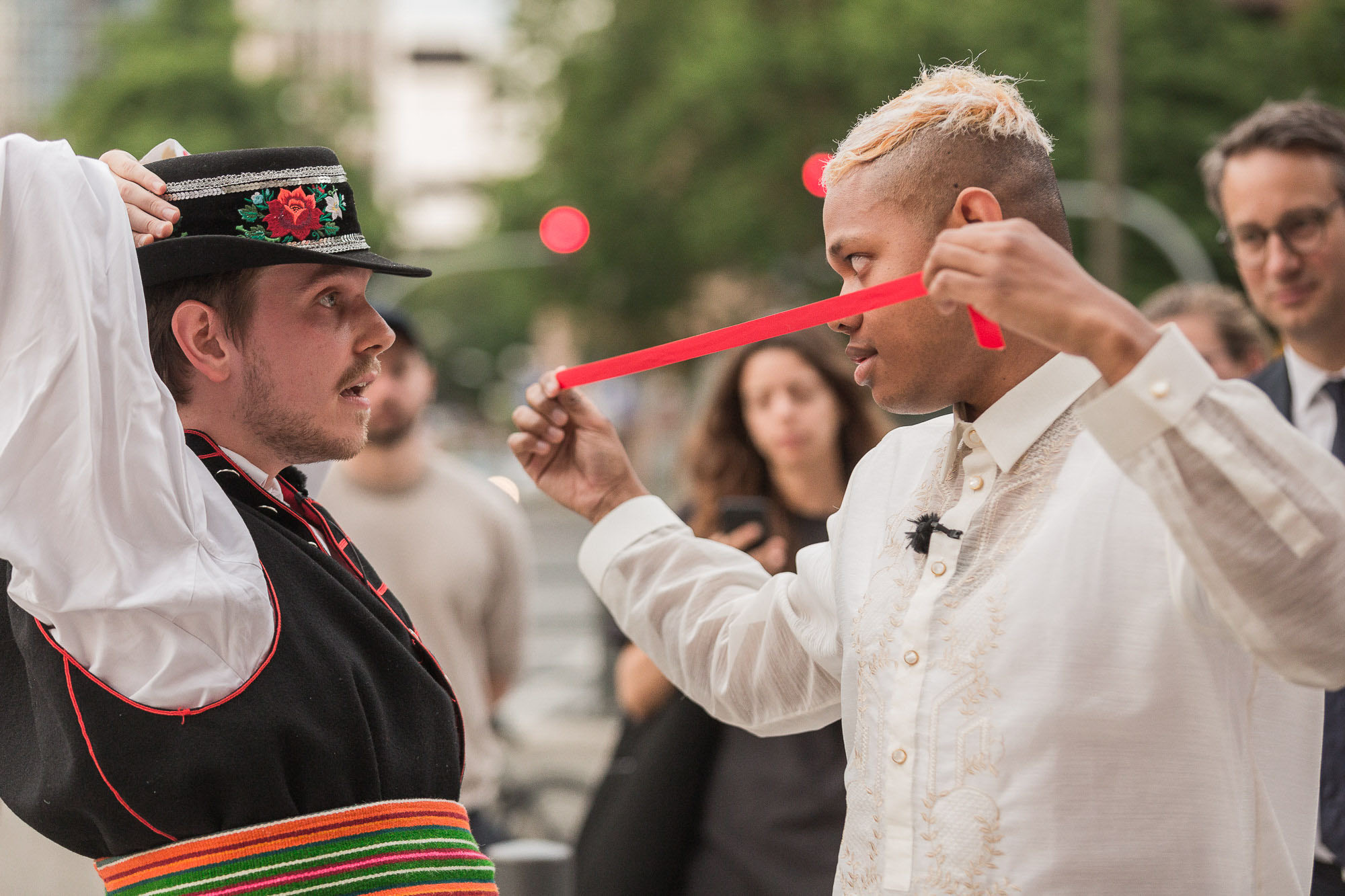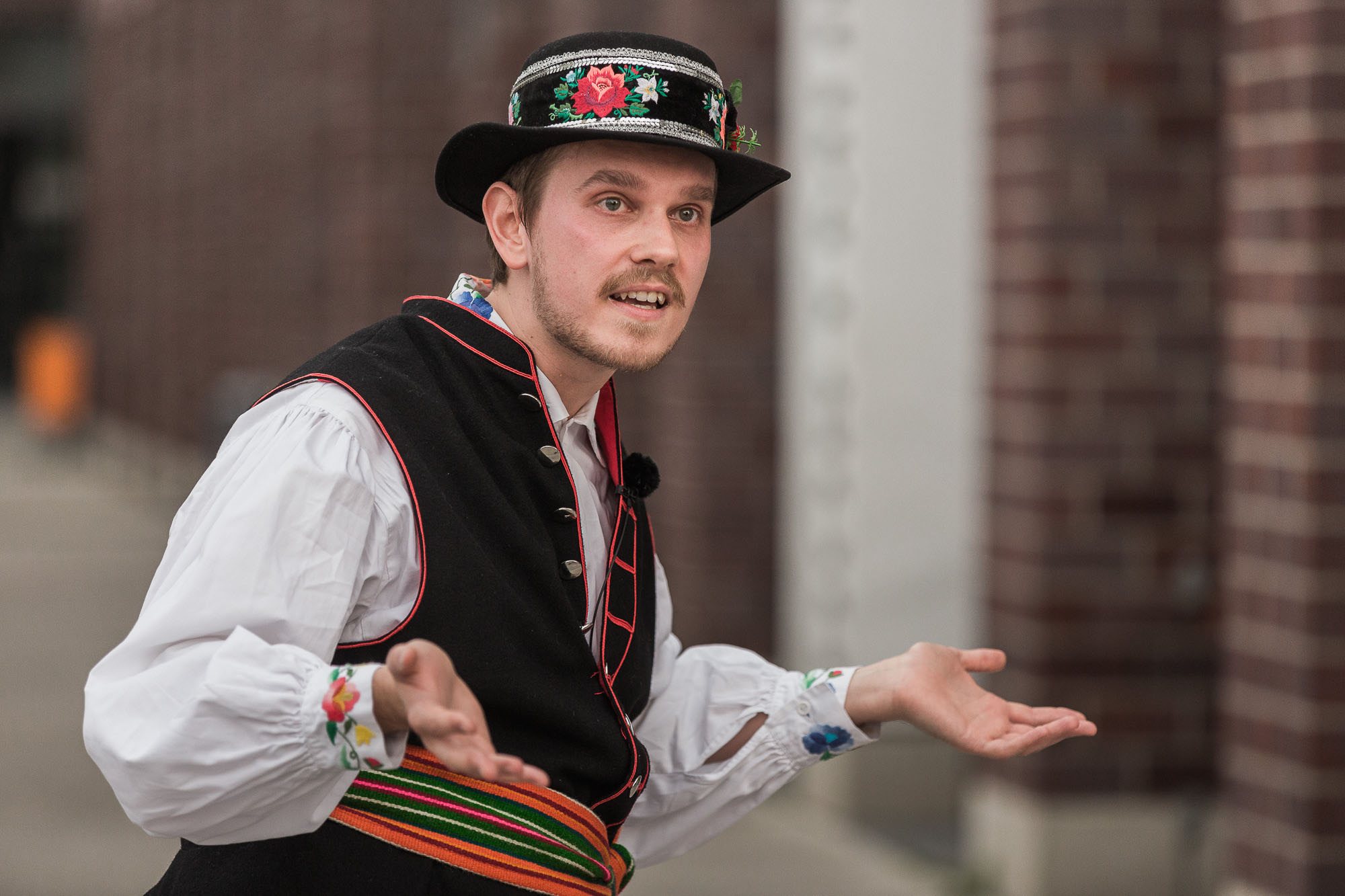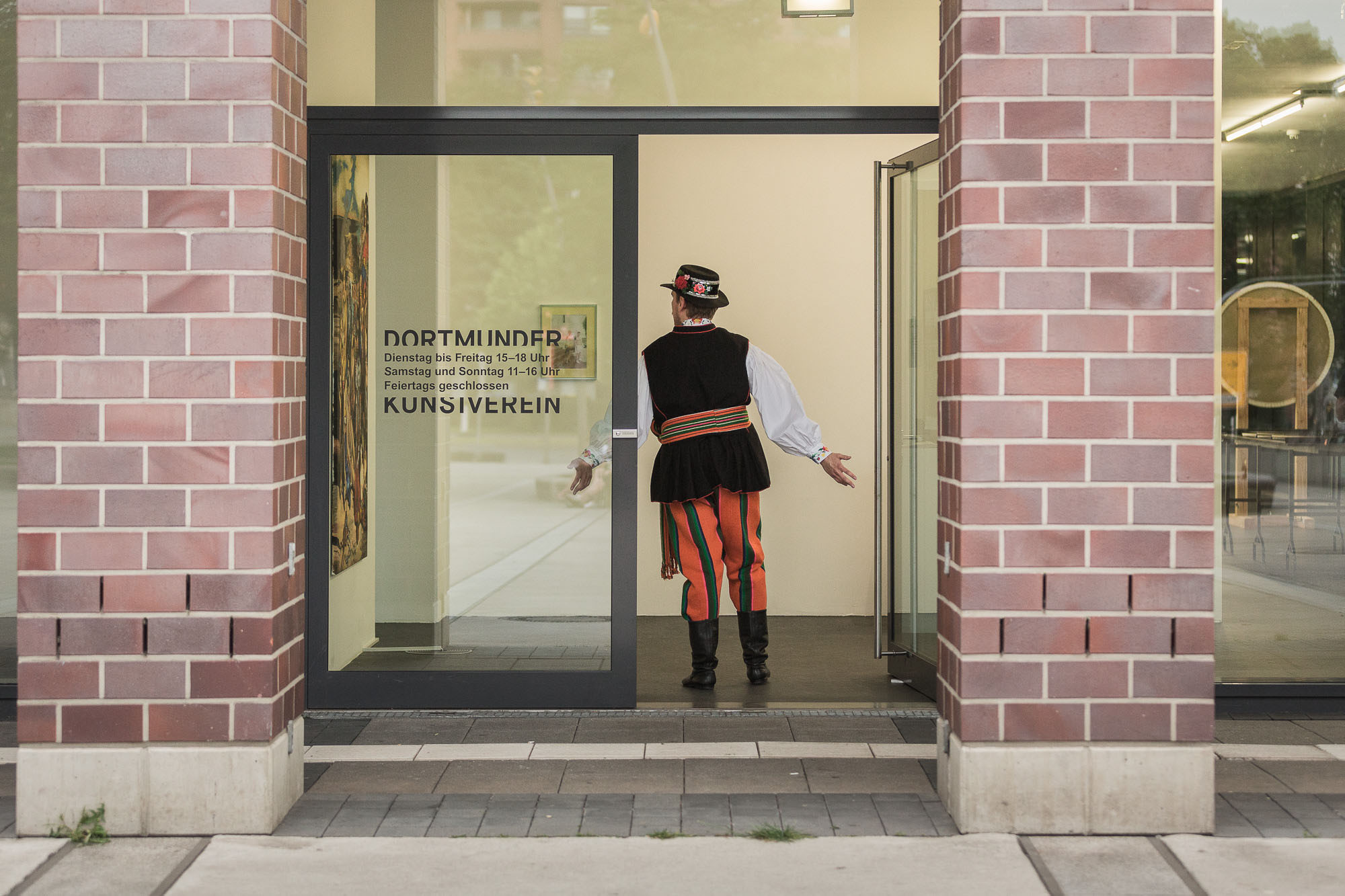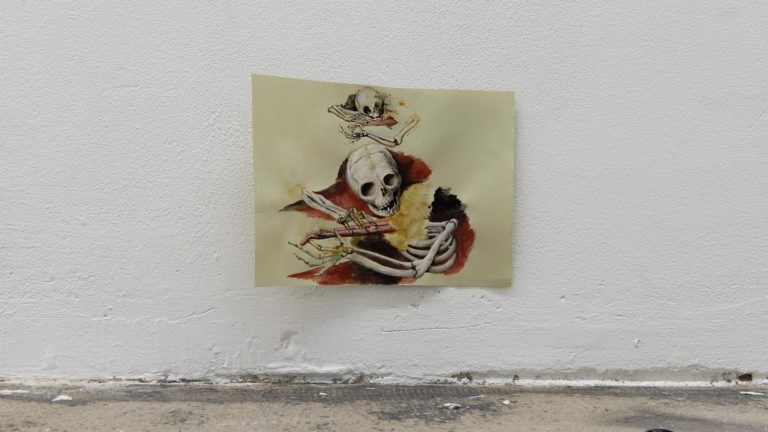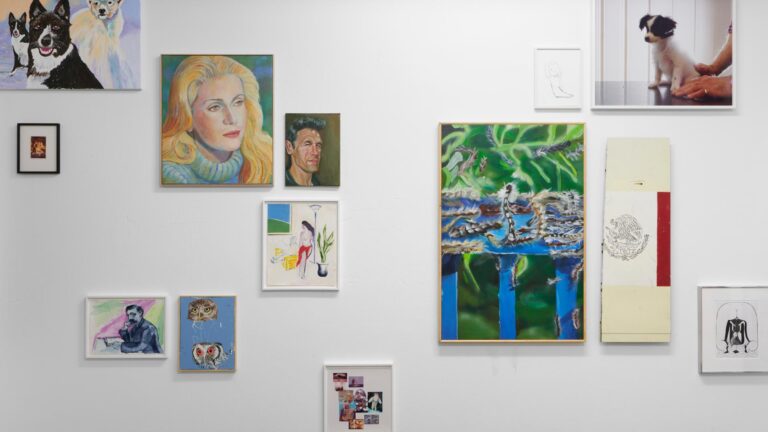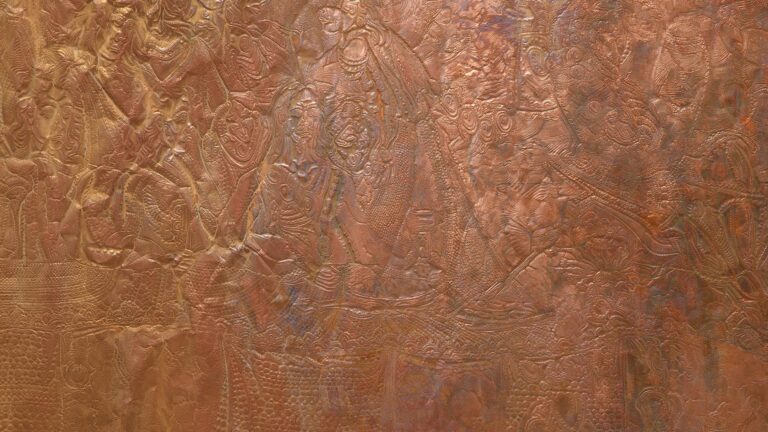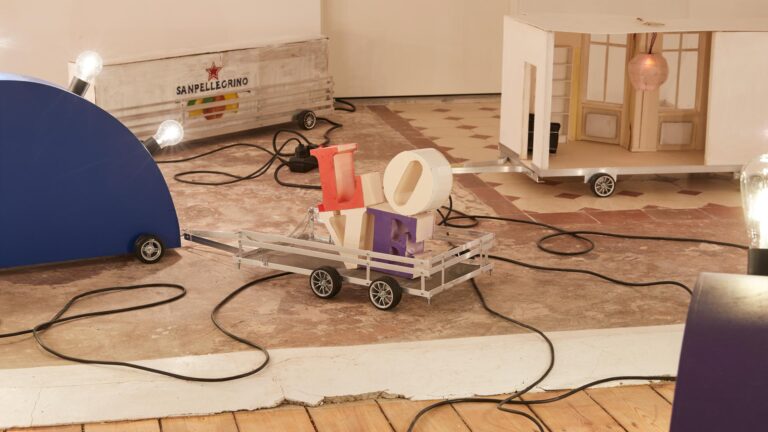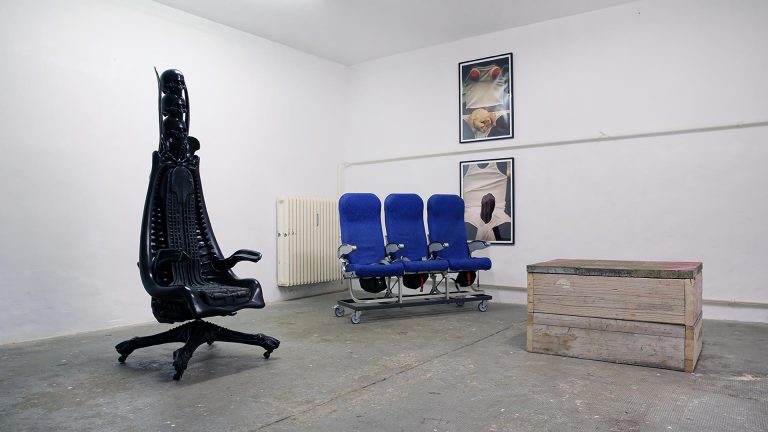Artists: Johannes Paul Raether, Victoria Sin, Mikołaj Sobczak, Philipp Timischl
Exhibition title: DISPLAY. Staging Identities
Curated by: Linda Schröer
Venue: Dortmunder Kunstverein, Dortmund, Germany
Date: June 15 – August 25, 2019
Photography: Simon Vogel / all images copyright and courtesy of the artists and Dortmunder Kunstverein
Note: Exhibition floor plan can be found here
Accentuated by performances and movies, the group exhibition DISPLAY. Staging Identities shows contemporary artistic positions which all focus on the topic of drag. Drag describes an exaggerated form of representation of gender, for example in appearance in the attire of the opposite gender, while every performer usually takes on a character or creates their own fixed identity. Even though all forms of drag have the subversion of conventional gender definitions in common, their blurring and reinforcing of non-binary or even gender-neutral roles can increasingly be observed.
The four artistic positions visualise that drag is capable of more and is in fact about going beyond the scrutinising of conventional gender definitions. They utilise drag as a tool for self-empowerment, as a means of reinventing an identity time and time again as well as questioning and overcoming social class, (hetero)normative concepts and existing historical narrative. Mikołaj Sobczak (*1989 in Posen PL, lives in Münster) analyses political and socio-historical events as well as the politics of memory, focussing on current global and social tendencies, for example the right-wing populist movements in Europe. Here, drag queens play a central role: as founding mothers of a new state, as a suggestion to overcome the crisis of masculinity in society or as witches, exorcising clerics.
Johannes Paul Raethers (*1977 in Heidelberg, lives in Berlin) work relies mainly of performances. So far, his WorldWideWitches are formed by his SelfSisters Transformellae, Protektoramae and Schwarmwesen, which can be perceived as their own, androgynous research units. For example, Transformellae work on a reprovolution, a queer utilisation of biotechnological advancements.
Victoria Sin (*1991 in Toronto CA, lives in London) also understands the human body as a module for opportunities to design alternative presents and futures. Their confident performances as well as video pieces address the absence of women in cultural contexts and broach the issue of objectification, prying glances and strategies of representation which use the previous to empower themselves.
Philipp Timischl (*1989 in Graz, lives in Paris) takes up the original idea of drag as a tool to overcome social class in his mostly autobiographic, multimedia works. Among other things, he is evocative of the ballroom culture in New York in the 1980s, protected spaces which placed no importance on ethnicity, class, gender and sexual orientation and in which families were founded regardless of consanguinity.
Drag appears as an antidote against homogeneity and the occupation of individual bodies by society. It is an opportunity and simultaneously a plea for insight, self-awareness and positioning, a token of solidarity and the significance of queer thriving. Drag exposes reality as a negotiable concept, points to its potential and therefore forms a counter concept to liberate our current society.
PERFORMANCES
Nicholas Grafia and Mikołaj Sobczak: It’s 10PM. Do You know where your children are?
The performance consists of a collage of circulating and partly looping texts like news, goodbye letters, family conversations, memories, as well as statistics and research finds on POC (and) LGBTQ* individuals’ social environment and psychological developments. Intergenerational and personal dynamics, tension between parent figures and their designated offspring, as well a s notions of love, hate, desire and regret are negotiated . The choreography and costumes are inspired by images of figures, known from folklore, oral tradition, film and art history focussing on narrations and images depicting characters that fought in various public and intimate settings of social resistance.
Adam Christensen: I wanna be lonely
Christensen’s performances are moments of grace: his alter ego “Madam” sings heartbreaking biographical love stories, mostly accompanied by an accordion. Personal memories are woven into a seductive narrative and transforms the environment into a cabaret-like space.
MOVIES
Victor/Victoria (1982, 134 Min, US), directed by Tim Lienhard
ONE ZERO ONE – The Story of Cybersissy & BayBjane (2013, 90 Min, D), directed by Blake Edwards

